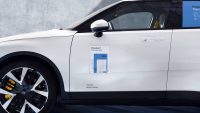Dealer group Riverside Motors saw its profits take a tumble last year, despite an upturn in revenue, new accounts have shown.
Documents published via Companies House show that the Barnsley-based retailer experienced a near 20 per cent fall in pre-tax profit in the 12 months to the end of December 2022.
That meant the group returned a profit before tax of £5.62m compared to 2021’s figure of around £7.01m.
The losses can largely be explained by the exceptional market conditions experienced in 2021, with other car dealers, including Holdcroft and Greenhous also seeing profits fall backwards.
Despite the setback, there was plenty of good news for the Car Dealer Top 100 outfit with revenue rising from £190.84m to £209.92m – an improvement of ten per cent.
The year also saw the group expand with the acquisition of a new Volvo franchise in Leeds. Staff numbers also swelled from 174 to 220.
As a result wages and salaries increased to £5.5m compared to £4.9m last year.
It was also the first period since 2019 when the firm did not receive any form of Covid support from the government. In 2021 Riverside was in receipt of £196,805 in furlough cash.
The group ended the year with net assets of £21.46m with bosses describing the position as ‘financially strong’.
Reacting to the results, director Mark Denton, said: ‘As for many motor trade businesses, the environment in which we operate has its challenges, namely a shortage of experienced staff (particularly technicians), ongoing new car supply constraints and high energy costs.
‘We are of course also subject to consumer spending patterns and consumers’ overall level of disposable income within the economy.’
He added: ‘The group is financially strong with a group balance sheet showing net assets of £21.46m. In addition, the group has adequate cash at bank and available facilities and its bank has continued to be very supportive.
‘Accordingly, whilst the Covid 19 situation is without precedent and very unpredictable, there has been very little impact on the group in 2021 or 2022 and the directors have a reasonable expectation that the company has adequate financial resources to continue in operational existence for the foreseeable future.’



































